The long road back: Ronnie O'Sullivan's journey from sabotage to solace
Interview: The five-time world champion talks to The Independent about overcoming his personal demons and rediscovering a new purpose in life outside of snooker
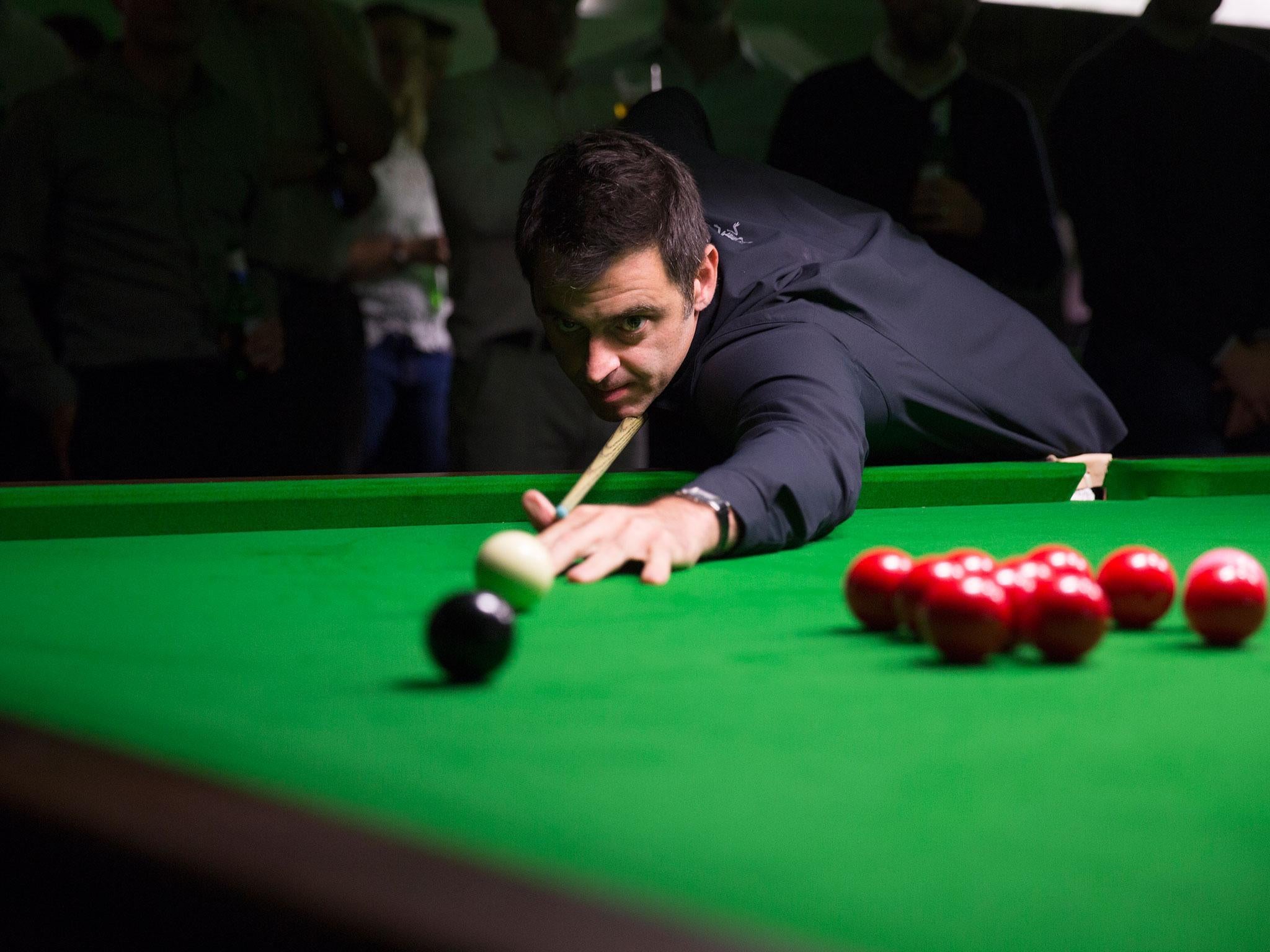
Your support helps us to tell the story
From reproductive rights to climate change to Big Tech, The Independent is on the ground when the story is developing. Whether it's investigating the financials of Elon Musk's pro-Trump PAC or producing our latest documentary, 'The A Word', which shines a light on the American women fighting for reproductive rights, we know how important it is to parse out the facts from the messaging.
At such a critical moment in US history, we need reporters on the ground. Your donation allows us to keep sending journalists to speak to both sides of the story.
The Independent is trusted by Americans across the entire political spectrum. And unlike many other quality news outlets, we choose not to lock Americans out of our reporting and analysis with paywalls. We believe quality journalism should be available to everyone, paid for by those who can afford it.
Your support makes all the difference.Ronnie O'Sullivan is sitting in the bar of a snooker club in London. Perched before him on the table is a series of Tupperware boxes containing various foodstuffs. One has home-made coleslaw, another tofu sausages. A little salmon and salad, a pool of hummus, some hearty chunks of sweet potato. It is the last of these upon which O’Sullivan is busily chomping when your correspondent arrives for this interview. With a brief apology, the greatest snooker player of his generation begins clearing away the boxes into a large Waitrose carrier bag.
“I’m on this health thing at the moment,” he says by way of explanation. He used to run 40-45 miles a week, but because of a bone spur in his heel, he has been forced to cut down. “And I basically just kept getting bigger and bigger. So I went to see this nutritionist, and she said you’ve got to cut down your portion sizes. Sensible portions every two or three hours, rather than lots of big meals. I’ve lost nine pounds over four weeks.”
It will not surprise you that O’Sullivan is not the sort of character who does things by halves. Snooker is a game that not just appeals to those who are obsessive by nature, but indulges the obsession, deepens it, sucks you into a world of infinite angles and infinite possibilities, of reds and colours and long nights and dark thoughts. In his 25 years in the game, O’Sullivan has had plenty of those. And so for all the awards and the acclaim - five world championships, 28 ranking titles, the fastest 147 break of all time, some of the most thrilling snooker ever glimpsed by human eyes - the last few years have, in a way, been the story of how O’Sullivan got his life back.
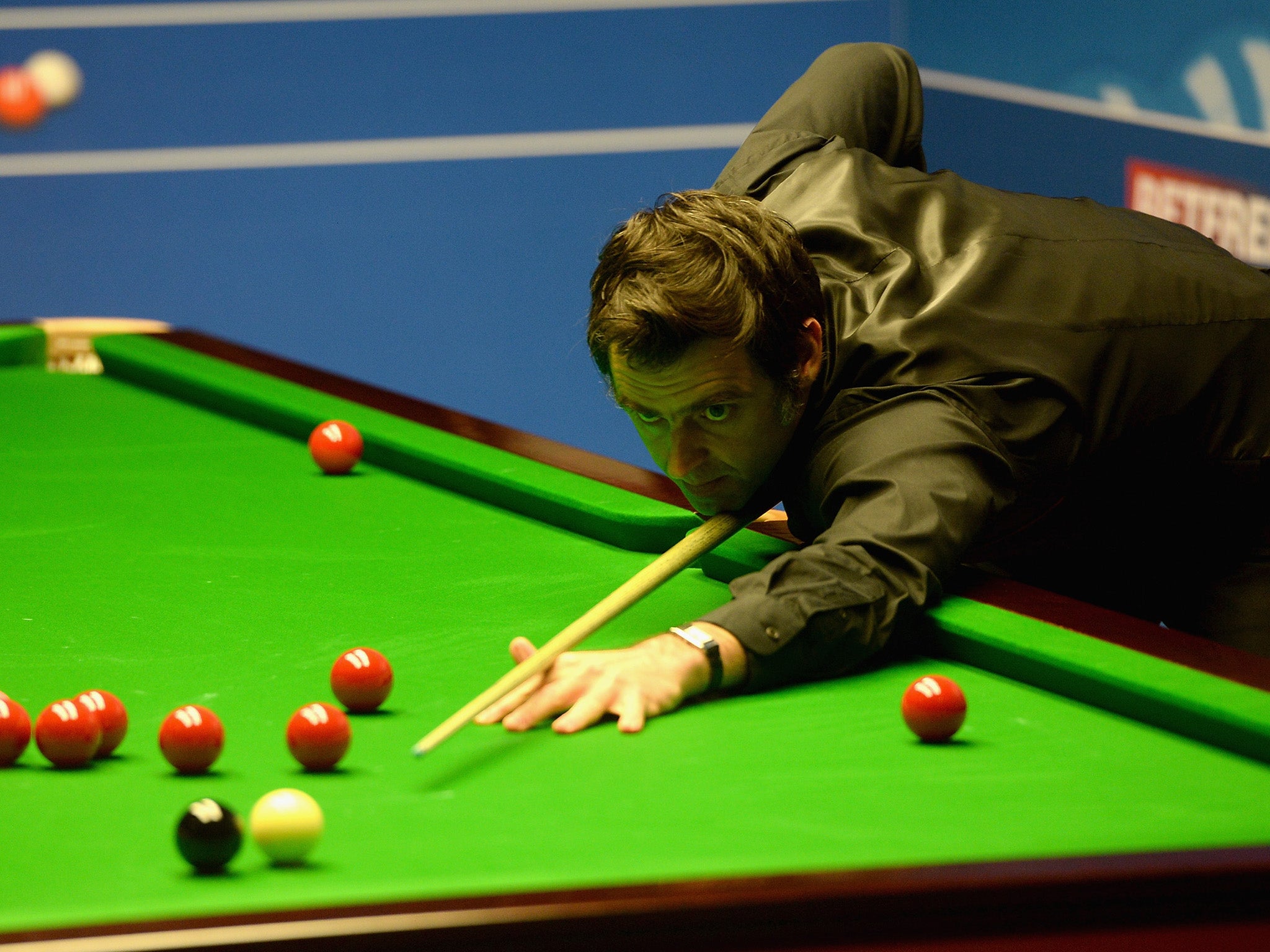
For some years, O’Sullivan’s frequent threats to retire from the sport became a sort of running joke. But in many ways, they were a cry for salvation, the natural outlet for a man who loved and hated the game in equal measure. Now 41 years old and a father of three, O’Sullivan says he is still enjoying his snooker, and is prepared to carry on playing it for as long as it suits him. But no longer will he allow it to haunt his every waking thought. No longer will snooker be the boss of him.
---
Six years ago, O’Sullivan went to see the celebrated sports psychologist Steve Peters in an attempt to curb the fits of temper that were scarring his game. His personal life was in tatters. He was engaged in a fraught custody battle with his ex-partner over their children Lily and Ronnie Jnr. He wasn’t sleeping. He had spent much of the previous year living on a canal boat. Meanwhile, his game was all over the place.
O’Sullivan told Peters about a match against Stephen Hendry some years earlier, in which he was losing and fed up, and so simply shook hands and walked away. What O’Sullivan came to realise, with the help of Peters, was that this sort of behaviour was a kind of elite-level brain freeze, a product of the negative thoughts that would whirr through his brain while he was playing. “I was sabotaging myself,” O’Sullivan says. “Allowing my mind to tell me: ‘I’m shit, I’m not going to play well, I can’t win this tournament, you might as well as get beat, go home.’ And then I would act on that. I’d go, ‘Well, fuck it, if I’m going to get beat, so what, lose the plot, shake hands, get out.’ That was what I’d done for 10, 12, 15 years.
“Steve help me re-programme my belief system. Just bring me into reality a little bit. Not every shot can be perfect. Not every match that you think is bad, is bad. And realising sometimes that when I’m frustrated, it can turn around in one shot. And it wasn’t just the relationship with snooker. It was the relationship with other people. It explained why I got myself in bother, and got hurt in relationships.”
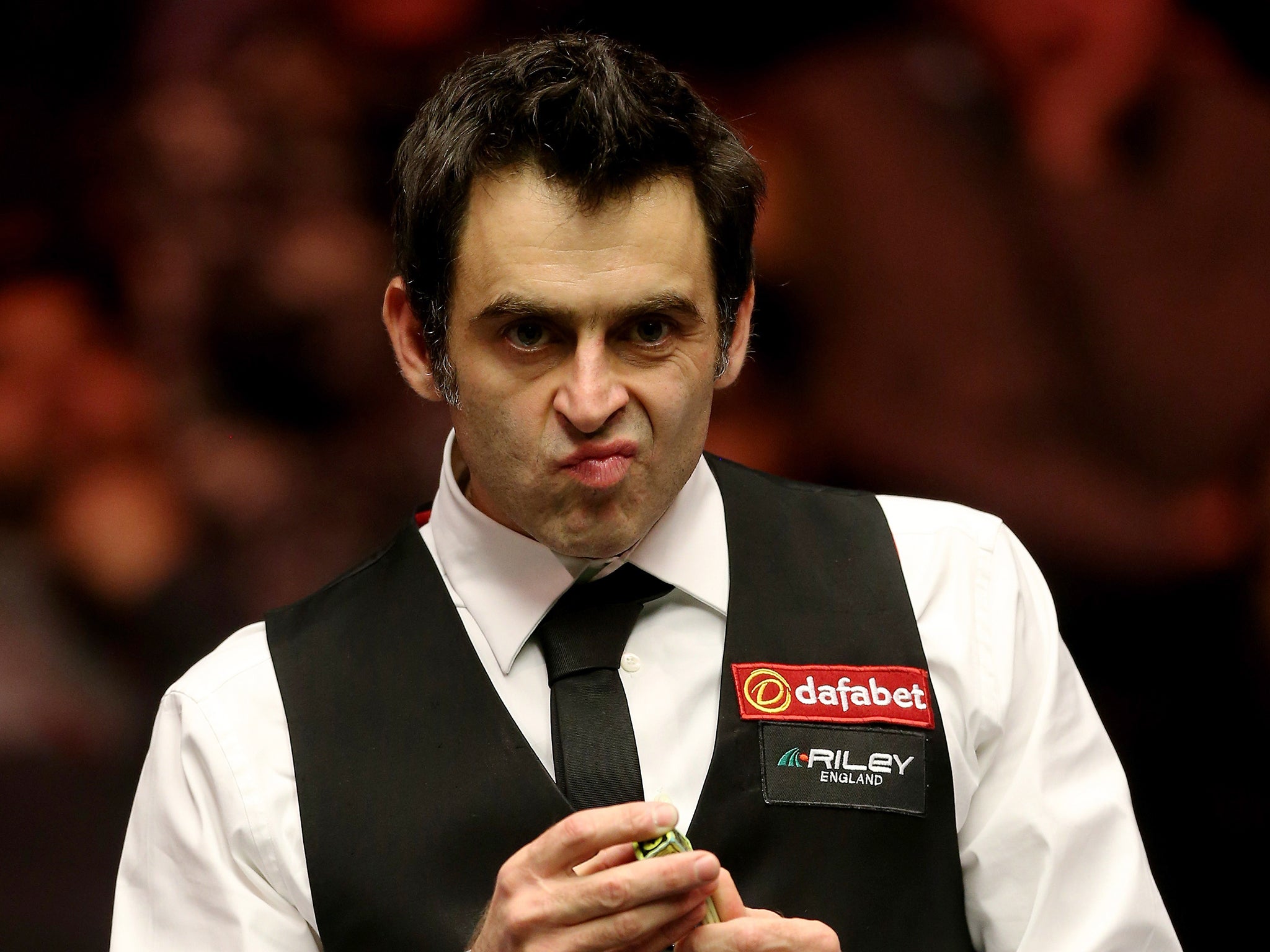
Peters helped O’Sullivan recalibrate his relationship with snooker, one that had become increasingly toxic over the years. It turned out he didn’t really want to walk away from the game; he just needed a healthier balance in his life. And so in the last few years, O’Sullivan has increasingly branched out in search of new ventures and new adventures, something that will pass the time when the time finally comes for him to hang up his cue. He has just finished his second novel, a London-set thriller called Double Kiss. He does some punditry for Eurosport. Most of all he takes pleasure in the simple things in life: going for a run, cooking a meal, spending time with his family.
It is why he has a decreasing amount of time for the modern snooker circuit, with its endless treadmill of labyrinthine tournaments in far-flung parts of the world. “I just play on my own terms,” he says. “We sign a contract with World Snooker, and within that there’s a lot of things I don’t agree with. Basically, they own everything to you, and they don’t want to give you nothing in return, and they expect you to be grateful because you’ve got a chance to play snooker.
“Bottom line is: do I want to play in the tournament? If I really want to play in the tournament, I’ll just put up with the contract. If I’m not really bothered, I’ll say: ‘here’s my price, here’s my terms, if you want to pay it, great.’ If they say no, then I just stay at home. I’ve got other stuff to do. I don’t really want to stop playing snooker, but I’m not prepared to be a slave to it.”

You could be forgiven for thinking, perhaps, that these are the words of someone gradually falling out of love with the game. But O’Sullivan insists that snooker has never felt like a job to him. “It’s more than that,” he says. “It’s something I’m good at. It’s something I can take, near enough, to perfection. You’re searching for the perfect shot, the perfect break. It’s more about fairness. And I don’t think the snooker circuit benefits the top players.”
Fairness is a word that seems to crop up again and again in conversation with O’Sullivan. During this summer’s general election, O’Sullivan began dabbling in politics, asserting his support for Jeremy Corbyn and showing up on the Labour campaign trail, knocking on the doors of what we can only assume were some extremely startled voters. In a country where athletes often recoil with horror from discussing anything vaguely political, O’Sullivan is happy to explain why Corbyn struck such a chord with him.
“Again, it comes down to fairness,” he says. “You see a lot of people out there that go without, and are finding it hard, and there’s no way out. I just don’t like to see that. So that’s why I’m much more Labour in my way of thinking. I get that there’s capitalism, and people need to be able to thrive. But it’s sad when you see people that are struggling out there, working full-time jobs and struggling to put food on the table.”
Was this a recent epiphany? “I was quite supportive of Ed Miliband,” he replies. “I was gutted for him, because I thought he really could have made a difference. But then when Corbyn got in, I was like: ‘Jesus! This guy is proper alternative!’ And now he’s got the backing of the Labour Party. It’s an unbelievable thing. He’s a proper Labour guy.”
Does he ever fancy standing for elected office himself? “Nah, I wouldn’t get in there, would I?” he says. “I’m a liability, ain’t I? I’ve got no chance.” But - and perhaps this is just the poetic fantasy of the writer - there is perhaps a little flash of something visible in his eyes, a little germ of a seed of an idea. And once an idea takes root in O’Sullivan’s head, it is the sort of thing he tends to see to its conclusion.
---
So what does come next? In the short term, the Home Nations series, starting with the English Open in Barnsley on Monday. In the medium term, there is another world championship coming around in a few months. O’Sullivan is no longer the dominant force in the game he once was; if anyone, it is world No1 Mark Selby, who has won three of the last four world titles. But the prospect of O’Sullivan claiming a sixth world title, tying the great Steve Davis, remains irresistible.
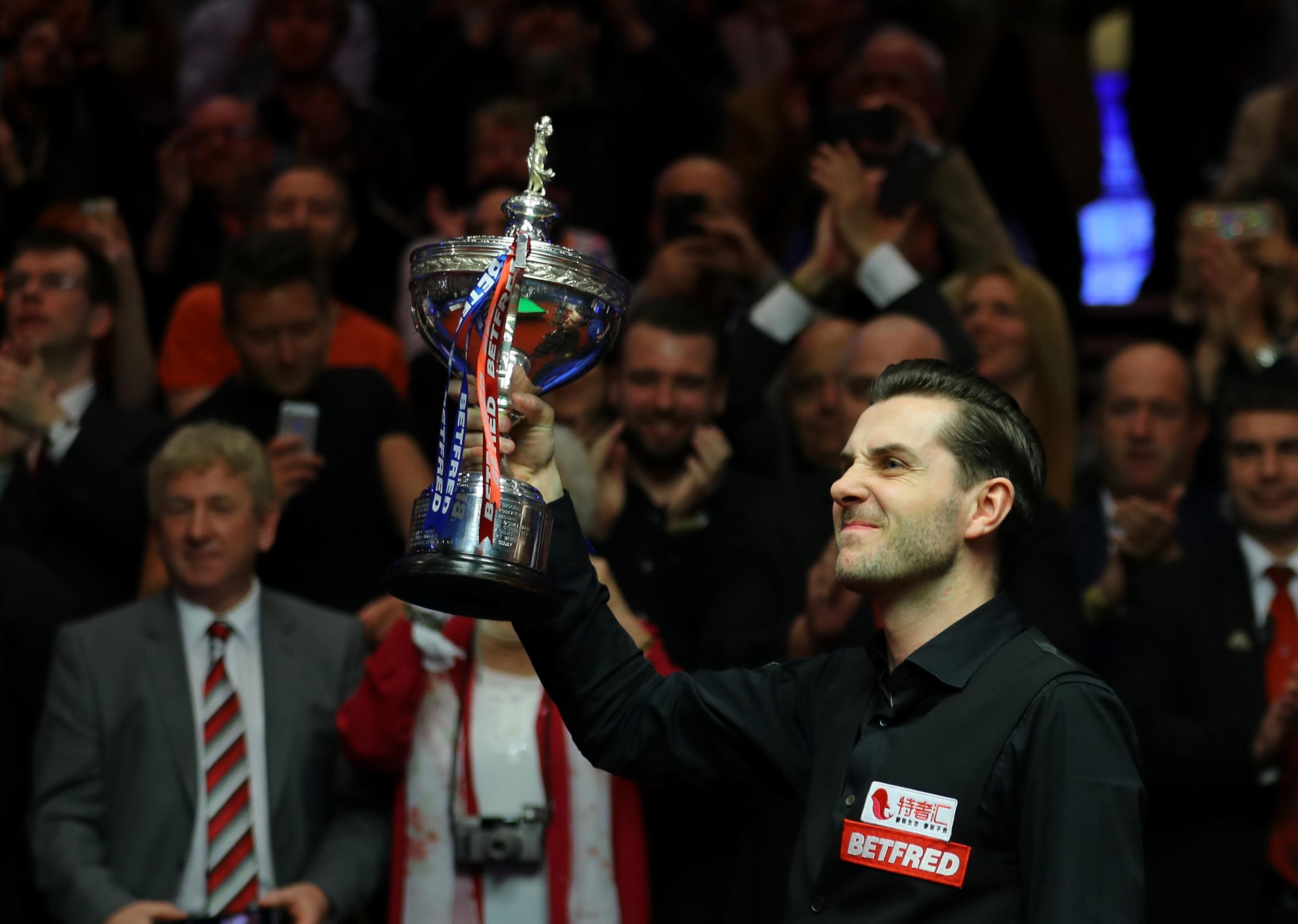
Unsurprisingly, O’Sullivan claims to be largely uninterested in chasing records. “It’s nice to have a legacy,” he admits. “It’s nice to leave some sort of statistics behind. But it’s not the be-all and end-all for me. In another 2000 years, they’ll look back at the history of snooker, and I’ll be in the top five or six greatest ever to have played. I’m already established. It’s just about trying to build on that.”
Later in the evening, O’Sullivan plays Jimmy White in an exhibition match. And as they stroll around the table sharing quips and badinage, it is vaguely sobering to consider that a generation after they first appeared on the scene, these are still two of the biggest names in the sport. There are talented youngsters coming through in the game, some dazzlingly entertaining to watch. But for some reason, none has achieved the sort of cultural resonance that White, Alex Higgins or O’Sullivan managed in their peak.
What sort of future does he see for the sport? “I think Luca Brecel’s a great talent,” he says. “Judd Trump’s a great talent. But for someone to really have a big following and big respect, you need to prove that you can entertain and win. People like Federer, Messi, Tiger Woods, that’s why they were so big. Maybe bigger than their sports. They not only entertained - they won. So for these players to really have an impact, they really need to start winning. It takes someone to dominate the sport.”
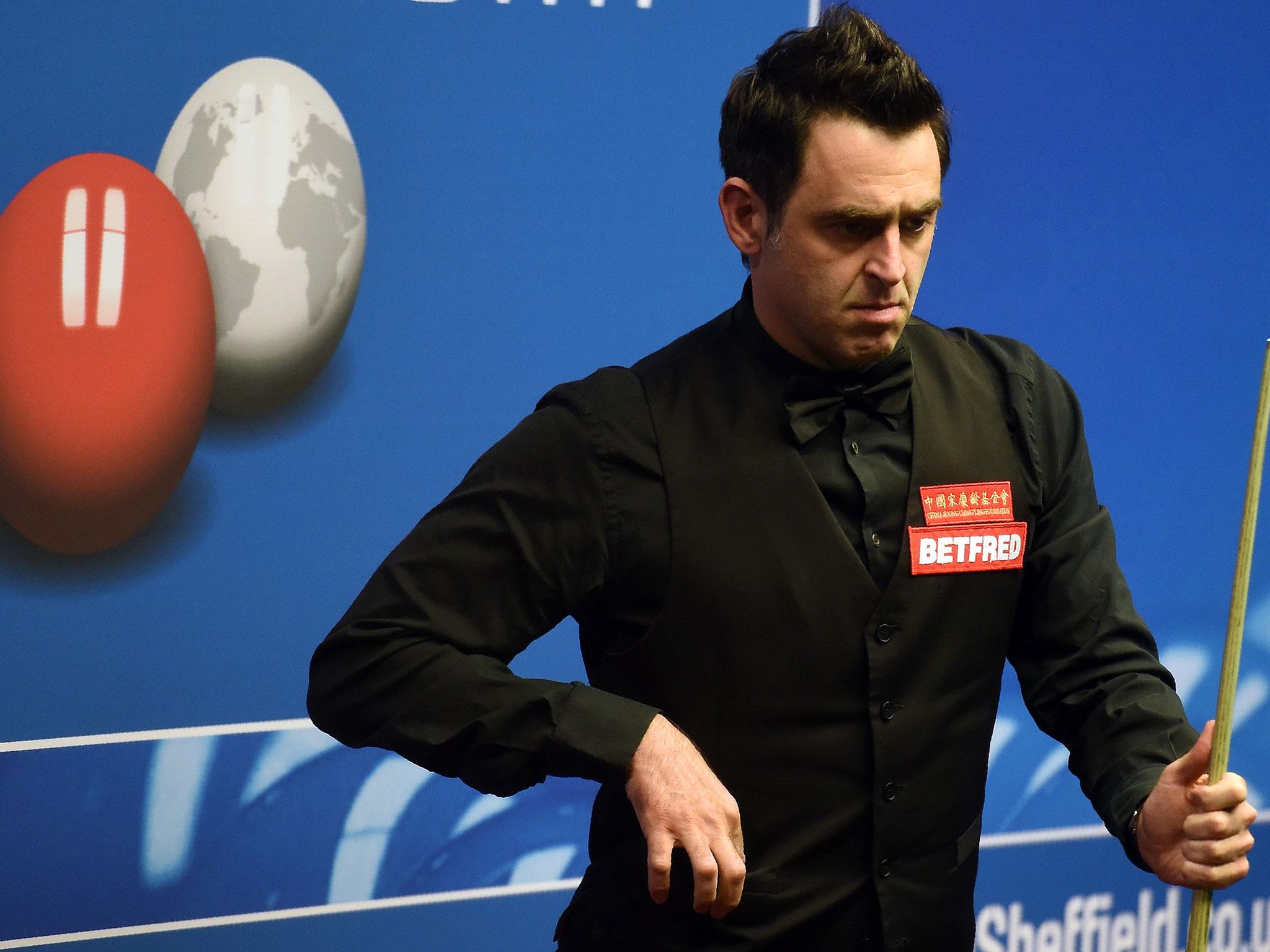
For his part, O’Sullivan is measuring his own success not by numbers, but by feel. He has spent the last few weeks back on the practice table ahead of the winter swing, yet for some reason it wasn’t quite coming together. “Three or four weeks of frustration,” he says. “Getting beat in practice by players I shouldn’t normally get beat by. Self-doubt creeps in. Have I lost it? You were bashing these guys up three or four years ago, easy.”
Suddenly, something clicked. A satisfying pot, a perfect kiss, a sweet-sounding contact, and suddenly - boom - he was away. And as O’Sullivan describes how it feels to be truly in the zone, you realise why this game still sucks him in, still obsesses him, all these years later. “Bloody hell, it’s a different game,” he says. “You’re away, flying. I’m at that place. Everything’s going in. It’s an easy game. And when it comes together, and you’re in a tournament and you’re flying, it’s like… the most amazing feeling.”
Watch the English Open LIVE on Eurosport and Quest with studio analysis from Ronnie O’Sullivan and Jimmy White. Also available via the Eurosport Player
Join our commenting forum
Join thought-provoking conversations, follow other Independent readers and see their replies
Comments